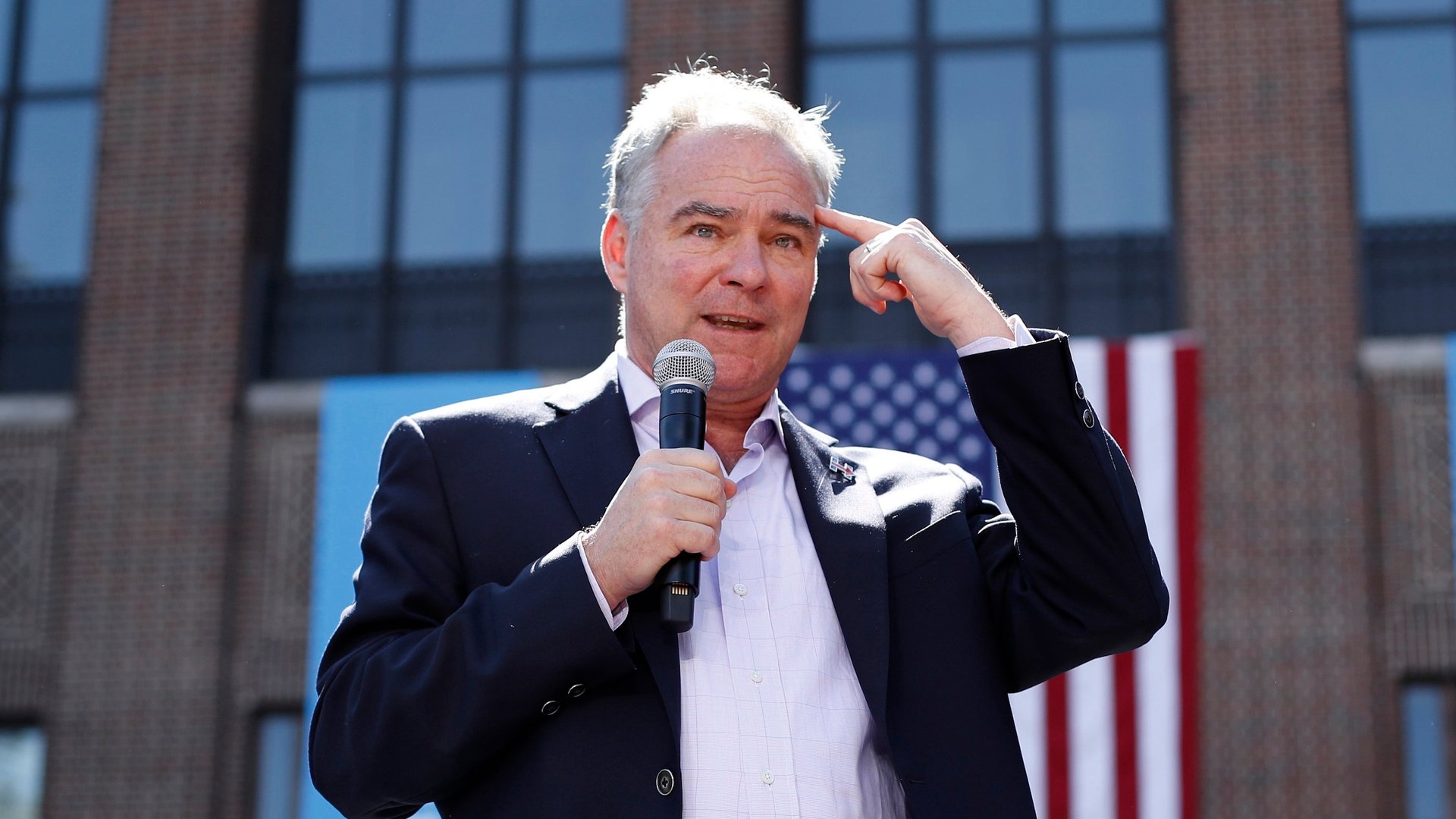After Trump and Clinton’s fiery first debate, will anyone care when their low key running mates face off?
The first debate between US presidential nominees Hillary Clinton and Donald Trump was a record-breaking affair. Eighty-one million viewers tuned in to watch the former secretary of state and New York real estate mogul face off, with an additional 2.5 million viewing via YouTube. Those are the highest ratings ever, surpassing the 80.6 million that watched president Jimmy Carter debate Ronald Reagan in 1980.


The first debate between US presidential nominees Hillary Clinton and Donald Trump was a record-breaking affair. Eighty-one million viewers tuned in to watch the former secretary of state and New York real estate mogul face off, with an additional 2.5 million viewing via YouTube. Those are the highest ratings ever, surpassing the 80.6 million that watched president Jimmy Carter debate Ronald Reagan in 1980.
Frankly, the numbers could have been higher. The debate was precedential in more ways than one—Hillary Clinton is the first woman to be nominated for the office of president by a major political party in the United States. And Donald Trump, aside from being an unusually attitudinal candidate, is the first reality-television star to be nominated. The match-up sets a high bar for future presidential campaigns when it comes to intrigue and star quality, for sure. And it will certainly compare starkly to the first debate between the nominees’ running mates, Republican governor of Indiana Mike Pence and Democratic senator from Virginia Tim Kaine.
The vice presidential candidates, unlike their running mates, are almost aggressively normal. These are two men who, with their resumes steeped in establishment politics, might have been party nominees themselves in other campaign years. But in 2016, when links to Washington and expansive political wheeling-and-dealing seem to be doing candidates more disservice than anything else, what function do men like Pence and Kaine serve?
Perhaps they’re the rational sandbags weighing down the more dramatic hot air balloons that are their running mates’ campaigns. That seemed to be Clinton’s implicit rationale when opting for Tim Kaine’s wider, more moderate appeal over more radical choices like Bernie Sanders or Elizabeth Warren.
The upside to their comparative harmlessness might be an actual debate of ideas, however. During Monday’s debate, it seemed as though Hillary Clinton was bouncing sound policy proposals off a brick wall. Donald Trump, in true fashion, appeared utterly incapable of stringing together a complete thought, let alone a cogent response to a question posed by moderator Lester Holt.
Kaine and Pence, while radically different in their policy standpoints and social ideologies, are polite guys, less prone to disruptive fits of egotism than the Republican nominee. There’s a reason the political commentariat is referring to the upcoming debate as #Dadbate—and while the assessment is tongue-in-cheek, the opportunity for Americans to hear measured and fair appeals, side by side, is the very basis for our debate system, vital to the effective practice of American democracy. If only we could count on all 82.5 million subjected to the spectacle of the last debate tuning in for this more mild-mannered remedy.